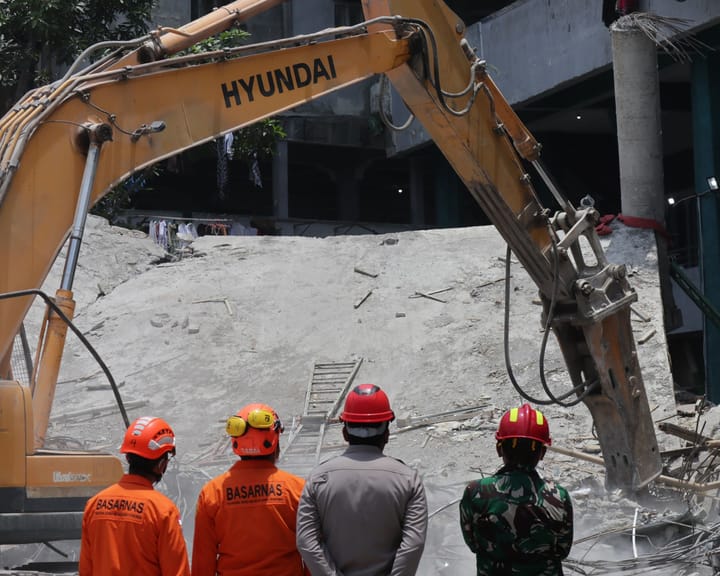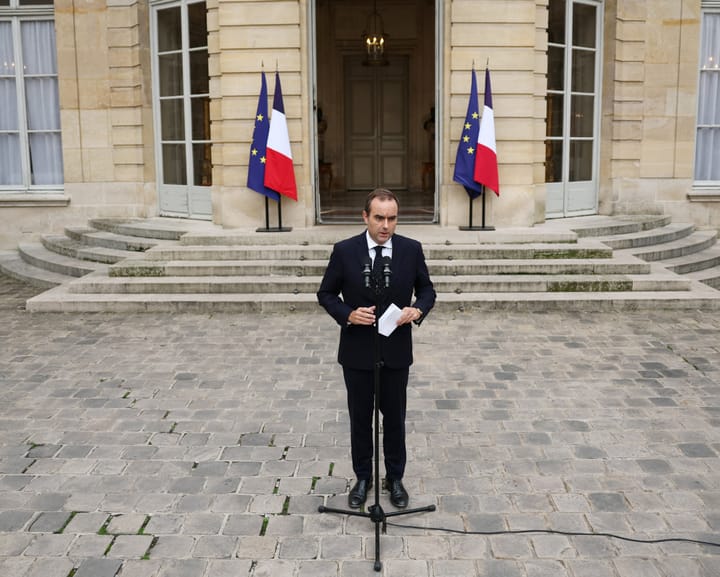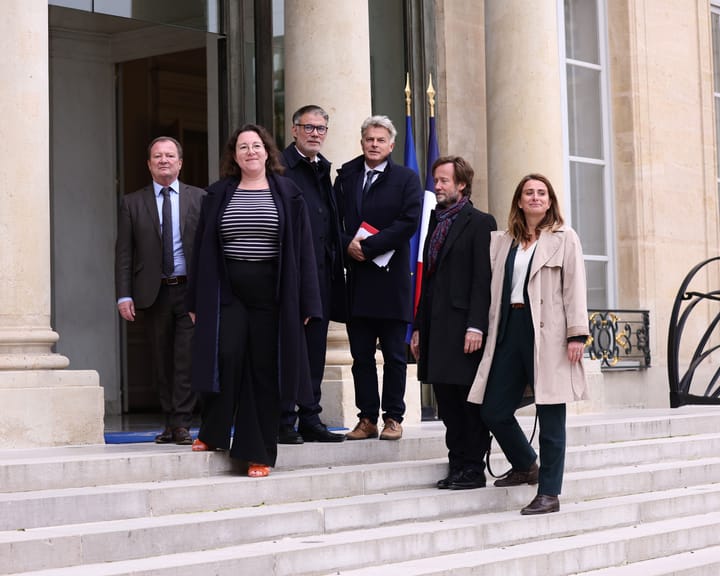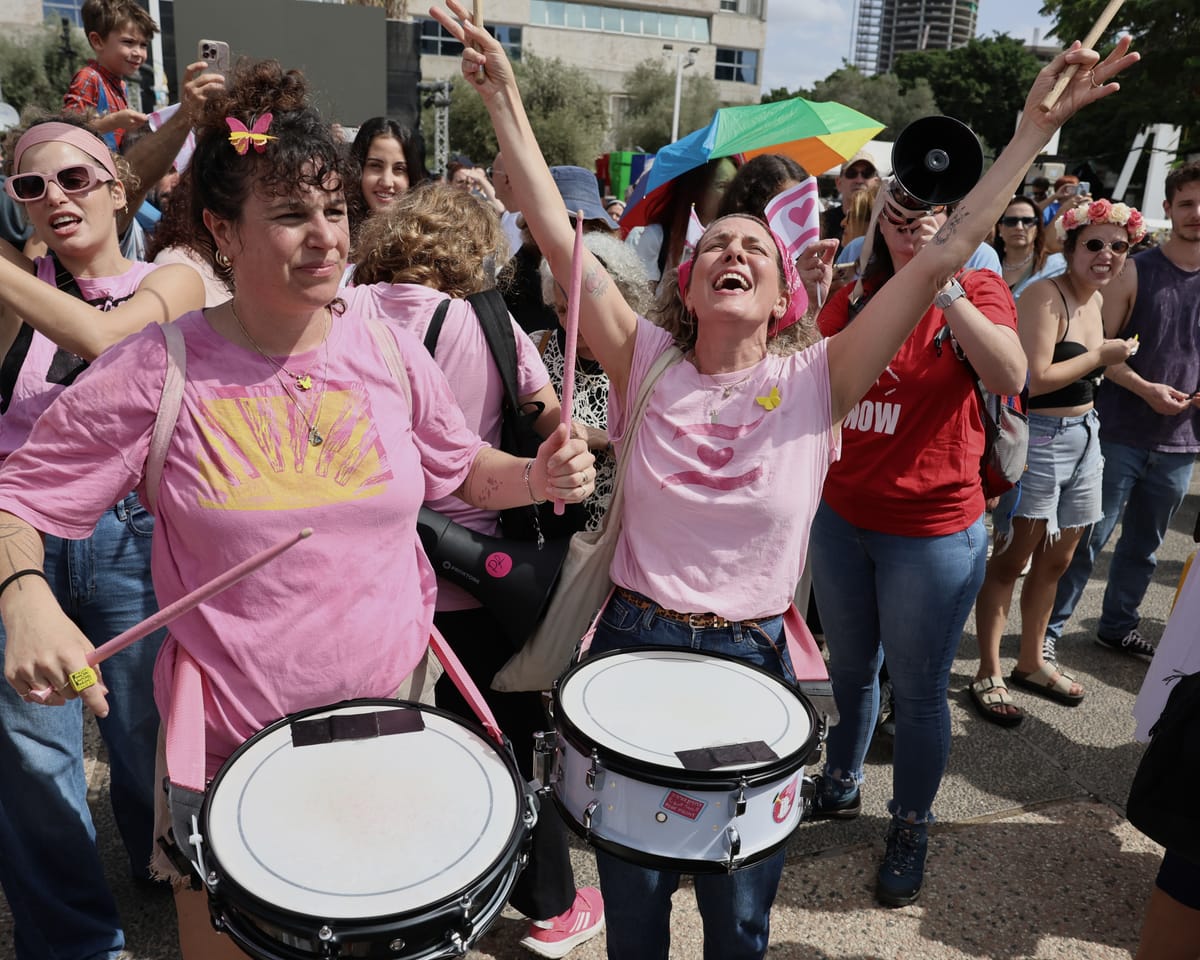For 733 days, Israelis gathered in Tel Aviv’s “hostages square,” wearing yellow tape on their shirts marking the number of days since 251 people were taken by Hamas-led militants. On Thursday, the yellow stickers remained, but the count was replaced with a single message: “They’re coming home.”
For two years, demonstrators had occupied the area near the Israeli military headquarters, setting up tents and organizing rallies calling for the hostages' return from Gaza. The site had been filled with artwork, photos of the captives, and a digital display tracking each day and second they spent in captivity.
That day, the protest chants that had echoed for years demanding government action were gone. Instead, marching bands played, and crowds sang about the awaited reunion with their loved ones.
“I felt relief when I heard the news, but I’ll only feel truly at ease when I see Eitan and the others. With hope, he’ll be back from this nightmare by Monday,” said Itzik Horn, 73, whose son is among the 20 living hostages still held by Hamas.
As he spoke, a man blew a shofar—a ram’s horn symbolizing faith and hope in Jewish tradition—drawing cheers from the crowd. People gazed at the rows of hostage photos, smiling at the possibility of soon seeing some of them in person.
Hours earlier, Israel and Hamas had reached a deal to free all remaining living hostages in exchange for nearly 2,000 Palestinian prisoners by Monday. The remains of about 28 deceased hostages would be returned when conditions permitted. Meanwhile, Israeli forces would partially withdraw from Gaza to facilitate the release.
For the hostages’ families, the agreement meant the end of a two-year ordeal.
“All this time, we’ve been living in hell. I wasn’t taken to the tunnels, but Hamas took me too—my mind, my life,” Horn said. His other son, Iair, had also been held captive but was freed during a brief ceasefire in February. Though six months have passed since his release, Iair still cannot speak about his time in captivity without being overwhelmed by emotion.
While the agreement marked the closest the warring sides had come to ending the two-year conflict—which has claimed over 67,000 Palestinian lives and led to accusations of genocide against Israel—a lasting peace remained uncertain.
Key parts of the deal, including Hamas's disarmament and the formation of a transitional Gaza authority, were still under negotiation. Israel continued airstrikes in Gaza well into Thursday morning.
For most Israelis, however, the hostage release was the priority. Everything else was secondary.
“I’m overjoyed—it feels surreal. After two years of this, finally, there’s hope.”
Read next

"Indonesia school collapse: rescue efforts conclude with 67 fatalities"
Search Ends After Indonesian School Collapse Leaves Dozens Dead
Indonesian rescuers concluded their search on Tuesday for victims trapped beneath the rubble of a collapsed Islamic boarding school in East Java, after recovering more than 60 bodies, authorities confirmed.
The tragedy in the town of Sidoarjo struck last week when

"French PM makes last-ditch effort to save government as crisis deepens – Europe updates"
France's Political Standoff Continues as Prime Minister Seeks Cross-Party Support
France remains at a political stalemate as the outgoing prime minister, Sébastien Lecornu, makes a final attempt to gather support from rival parties for a new government.
President Emmanuel Macron assigned Lecornu, 39, to form a government in

"Macron calls emergency talks with parties to swiftly pick new PM"
Emmanuel Macron has called upon the leaders of several political factions to his office, urging them to demonstrate "collective responsibility" as he seeks to appoint a new prime minister amid growing political turmoil.
All parties except Marine Le Pen’s far-right National Rally, the largest opposition group, and

